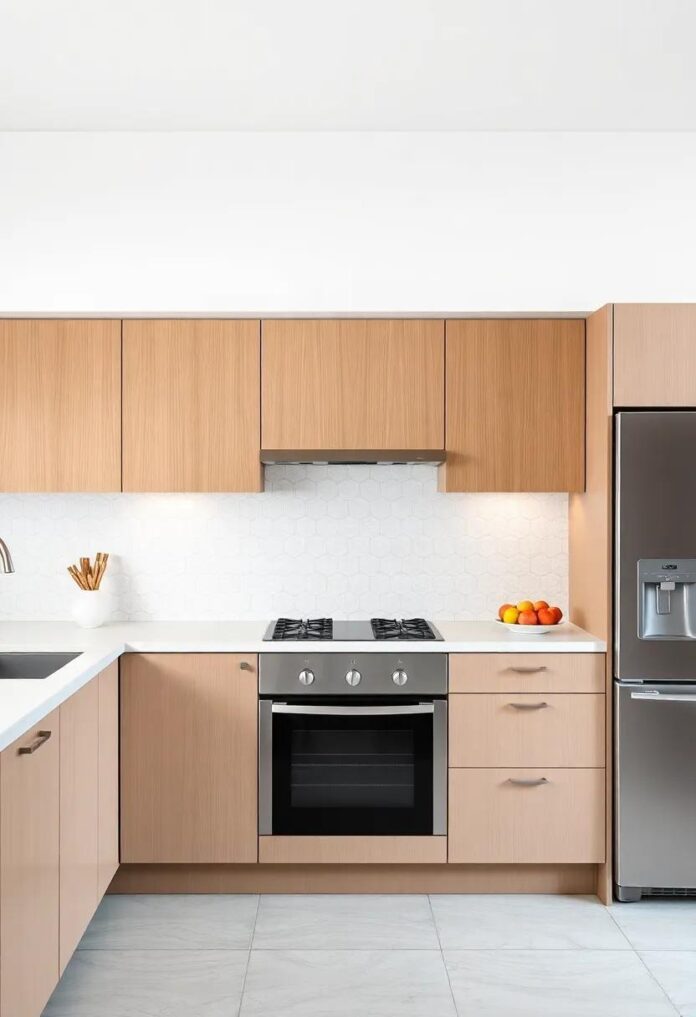In the heart of every home lies the kitchen—a space where flavors meld,memories are created,and culinary adventures unfold. As the cornerstone of daily life, it deserves to be as inviting as the meals it produces. Enter the captivating world of two-tone kitchen cabinets,a design trend that offers not just aesthetic appeal but also a fresh perspective on the customary kitchen layout. By juxtaposing colors and materials, two-tone cabinetry breathes life into your culinary space, creating a dynamic environment that sparks creativity and joy. In this article, we will explore how you can enhance your kitchen with this alluring aesthetic, delving into design inspirations, practical tips, and the transformative power of color in one of the most pivotal rooms in your home. Whether you’re a seasoned chef or an occasional home cook, the versatile beauty of two-tone cabinetry is sure to inspire your next renovation or update.
Enhancing the Visual Appeal of Your Kitchen With Two-Tone Cabinets
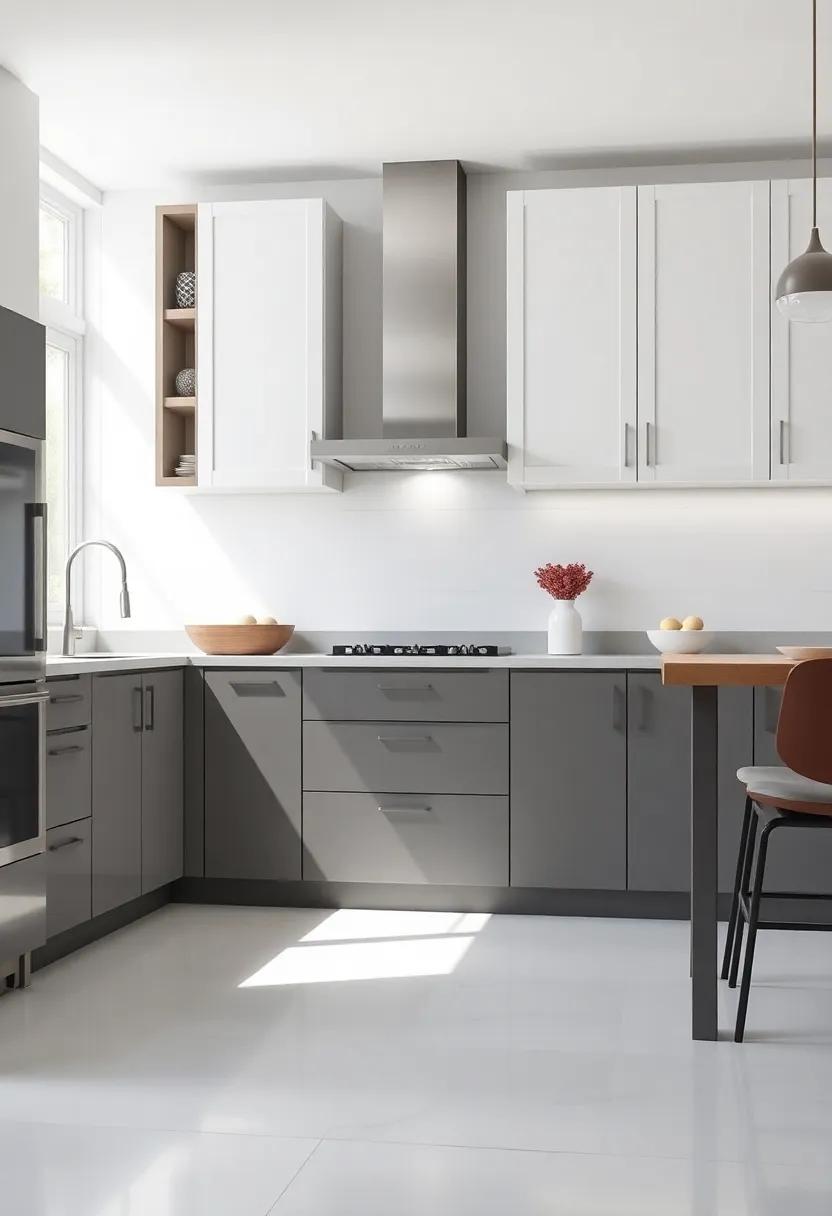
Two-tone cabinets are an innovative way to transform your kitchen into a stylish culinary haven. By cleverly combining contrasting colors and finishes,you can create depth and visual interest that draws the eye. Consider the following pitfalls to avoid while choosing your palette:
- consider the Size: Dark colors can make a small space feel even smaller.
- Match Styles: Ensure your cabinet styles align with the overall kitchen design.
- Balance is Key: Strive for harmony in color proportions to maintain a cohesive look.
To maximize the impact of two-tone cabinets, think about using different colors for the upper and lower cabinets, or even opting for an island that stands out from the rest of your cabinetry. A common approach is to pair lighter shades on top with darker shades below, providing a visually stunning contrast while keeping the atmosphere light and open. Here’s a simple color pairing table to inspire your selection:
| top Cabinet Color | Bottom Cabinet Color |
|---|---|
| Soft White | Charcoal Gray |
| Pale Blue | Rich Navy |
| Light Oak | Deep Espresso |
| Muted Sage | Warm Taupe |
Exploring the Color Palette: Choosing Complementary Shades for Your Cabinets
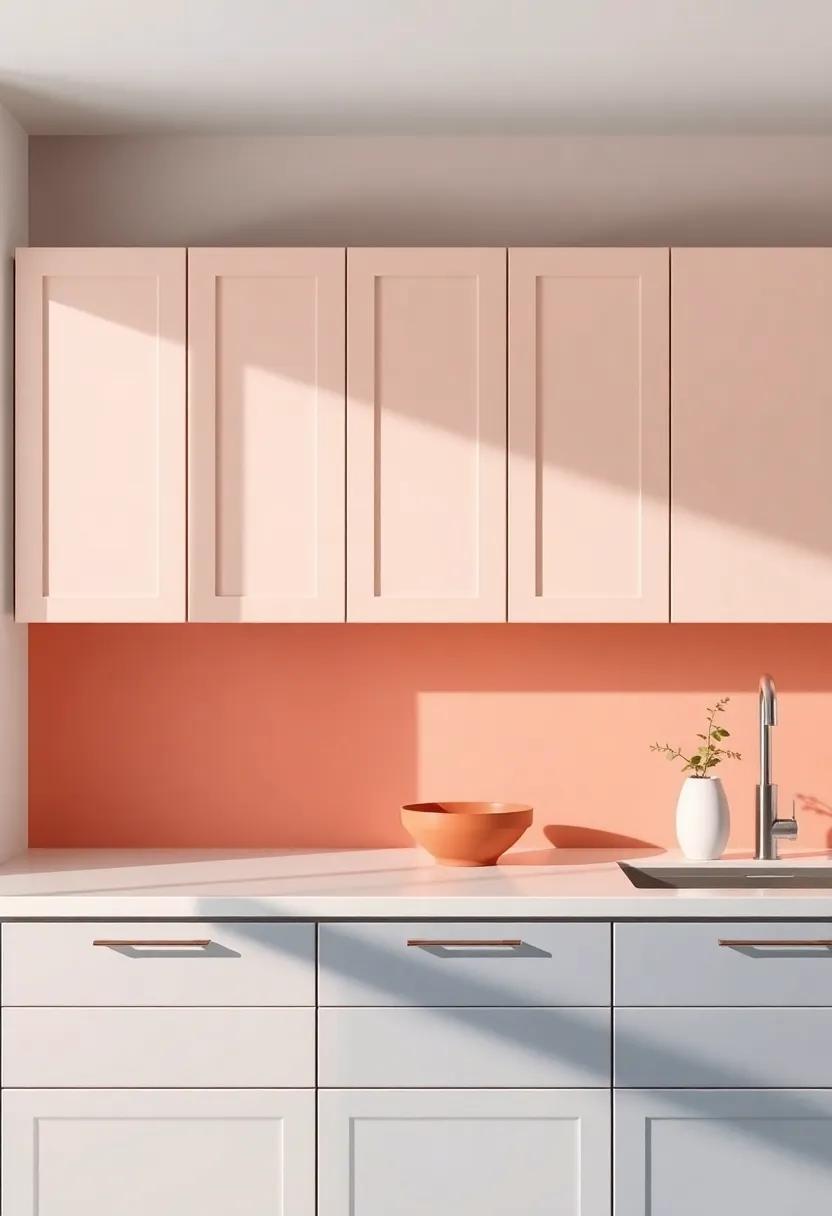
Choosing the right colors for your cabinets can transform your kitchen from ordinary to unusual.Embrace the power of contrast by pairing bold hues with softer shades. As a notable example, navy blue lowers the vibrancy of a kitchen without sacrificing elegance when counterbalanced by crisp white or muted grey. Moreover, consider the surrounding colors in your kitchen; earthy tones like terracotta can harmonize beautifully with creamy yellows or soft sage greens, creating a warm and inviting atmosphere.
To help visualize the perfect combinations,think about these complementary pairings:
| Base Color | Complementary Shade |
|---|---|
| Charcoal grey | Soft Blush Pink |
| Deep Forest Green | Warm Beige |
| Pale Blue | Golden Honey |
| Rich Plum | Ivory Cream |
These combinations not only highlight the cabinets but also reflect your style. Experiment with varying textures and finishes; a matte finish can provide depth when paired with a glossy counterpart, adding layers of interest to the design.Remember, the goal is to create a cohesive look that sparks joy each time you step into your culinary space.
Creating Depth and Dimension in Your Culinary Space Through Color
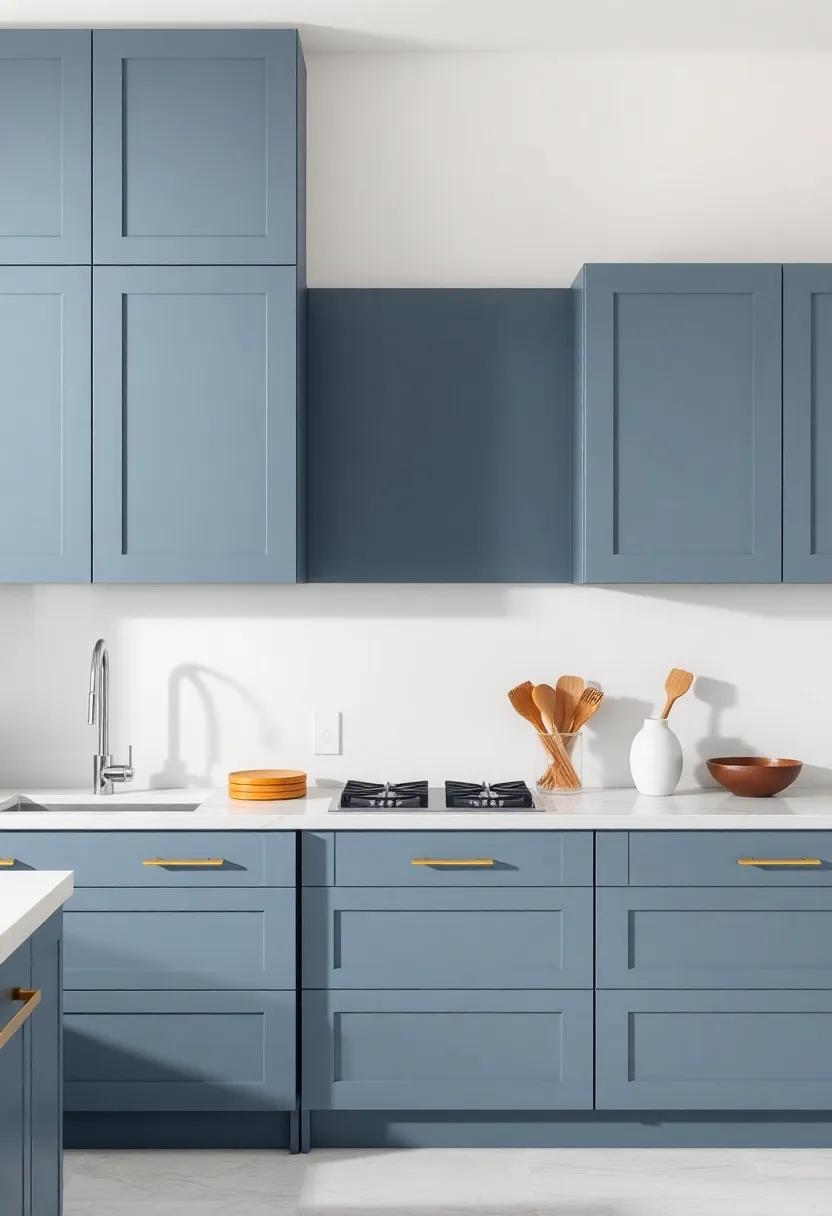
Incorporating two-tone kitchen cabinets into your culinary space is an artistic way to create contrast and visual intrigue. By selecting complementary colors, you can elevate the aesthetic appeal of your kitchen while enhancing its functionality. As a notable example, dark lower cabinets can ground the space, offering a dramatic touch, while light upper cabinets create an airy feel. This juxtaposition not only draws the eye but also creates layers, allowing for a more dynamic environment. Consider these options:
- Classic Navy and Crisp White: A timeless combination that exudes sophistication.
- Rich Gray and Soft Pastel: A modern take that introduces a sense of warmth.
- Bold Black and Shining Yellow: For those looking to make a lively statement.
Additionally, utilizing different cabinet door styles within the two-tone scheme can further enhance the sense of depth. For example, mixing glossy finishes with matte surfaces introduces texture, creating a captivating layered effect. A well-planned color palette can also influence the perception of space; lighter tones foster openness while deeper hues can make a large kitchen feel cozier. Here’s a simple comparison of color effects:
| Color | Effect |
|---|---|
| Light Colors | Enhance spaciousness and brightness. |
| Dark Colors | Add depth and intimacy. |
| Bold Colors | Introduce energy and character. |
The Impact of Two-Tone Cabinets on Kitchen Lighting and Ambiance
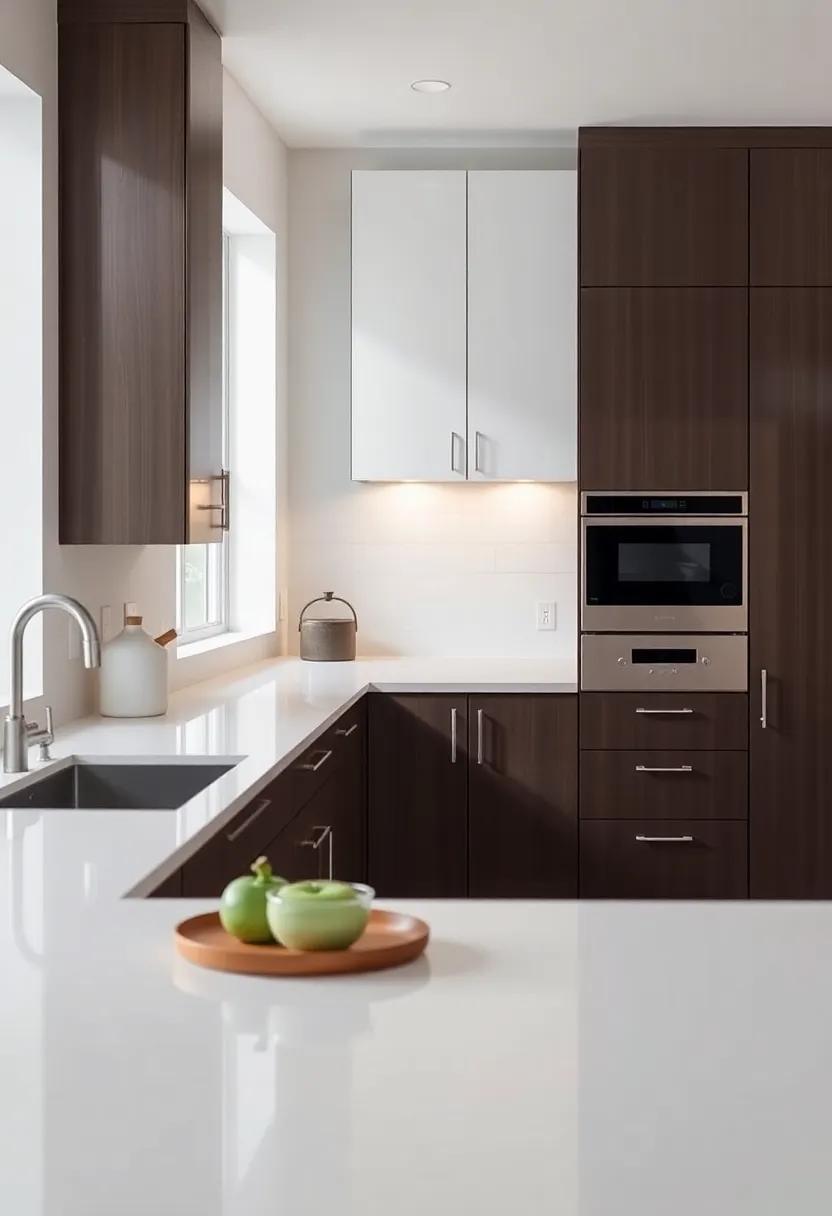
The use of two-tone cabinets can significantly transform kitchen lighting and ambiance, adding depth and dimension to the space. By combining contrasting colors for upper and lower cabinets, homeowners can create a visually dynamic environment that reflects their personal style. As a notable example, pairing light-colored upper cabinets with dark lower cabinets can enhance natural light, making the room feel brighter and airier. Conversely,using dark upper cabinets with lighter tones below can create a cozy,intimate atmosphere.
Moreover, the interplay of colors allows for strategic lighting placement, emphasizing key areas and creating layers of illumination. Consider these factors when planning your two-tone cabinet design:
- Color matching: Choose a combination that complements your overall kitchen palette.
- Accent lighting: Install under-cabinet lighting to highlight the contrast.
- Fixture choices: Select fixtures that harmonize with both cabinet colors for a cohesive look.
| Cabinet Color pairing | Effect on Ambiance |
|---|---|
| White & Navy Blue | Fresh and modern feel |
| Gray & Wood Finish | Warm and inviting atmosphere |
| Black & gold | Luxurious and sophisticated vibe |
Ultimately, two-tone cabinets not only elevate the aesthetic appeal of your kitchen but also enhance the functionality of your lighting design, creating a space that is as practical as it is indeed stylish.
A Seamless Blend: Integrating Two-Tone Cabinets With Existing Décor
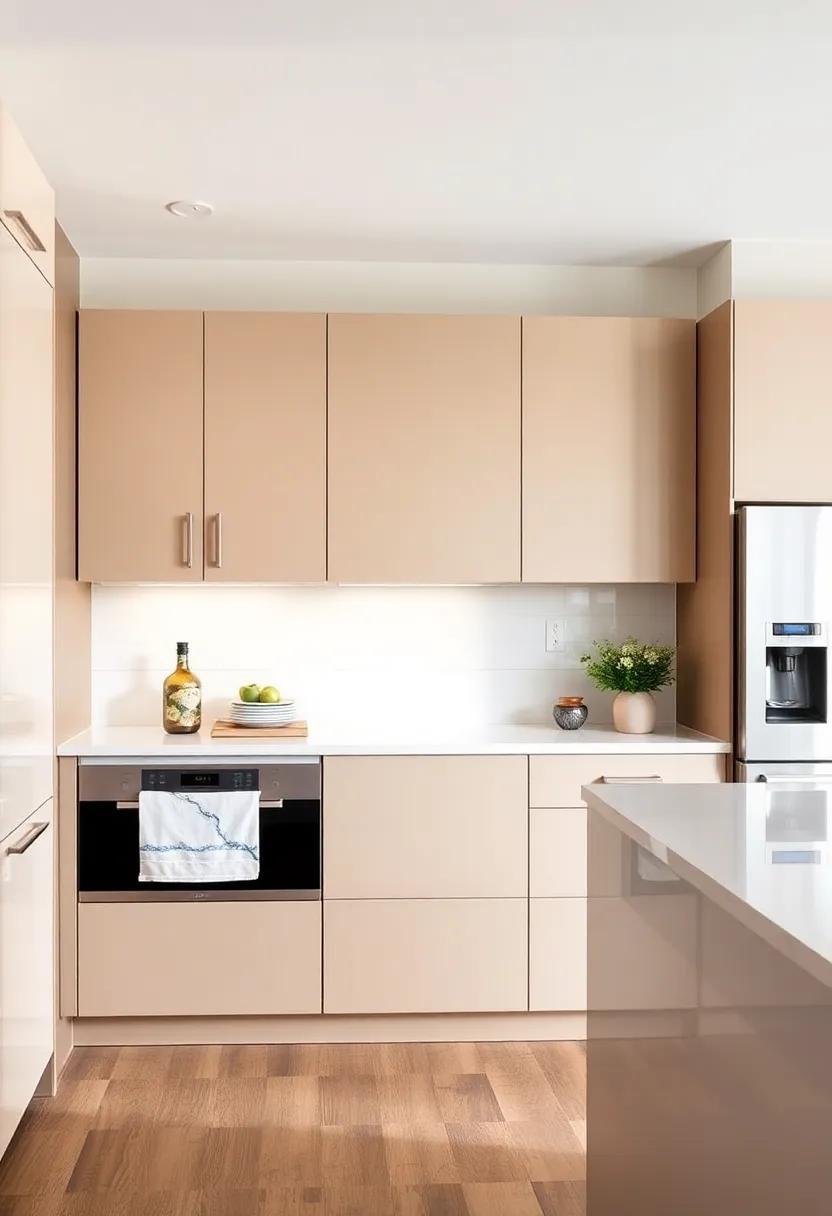
Integrating two-tone cabinets into your kitchen can be a jubilant endeavor, allowing the freedom to express your style while harmonizing with existing décor. To achieve a fluid design, consider pairing light upper cabinets with darker lower ones, as this contrast creates a sophisticated yet inviting atmosphere. Keep in mind your kitchen’s color palette, opting for tones that complement other elements such as countertops, backsplashes, and flooring.Materials play a important role; mixing textures like matte finishes with glossy accents can add dimensionality and intrigue to the overall aesthetic.
BEST-SELLING PRODUCTS IN THIS CATEGORY
Incorporating decorative accents is another opportunity to weave together your chosen cabinet colors with your kitchen’s persona. Here are some suggestions to achieve a cohesive look:
- Add hardware: Choose cabinet knobs and handles that resonate with both cabinet colors, bridging the visual gap.
- Use statement lighting: Fixtures that mimic cabinet tones can bring harmony while providing functionality.
- Decorative elements: Vases or artwork featuring the hues from your cabinets can further tie the space together.
By thoughtfully selecting these details, you can create a delightful culinary space that reflects your taste, elevating both functionality and style while retaining the charm of your home’s existing décor.
Innovative Ideas for Cabinet Pairings That Elevate Kitchen Design
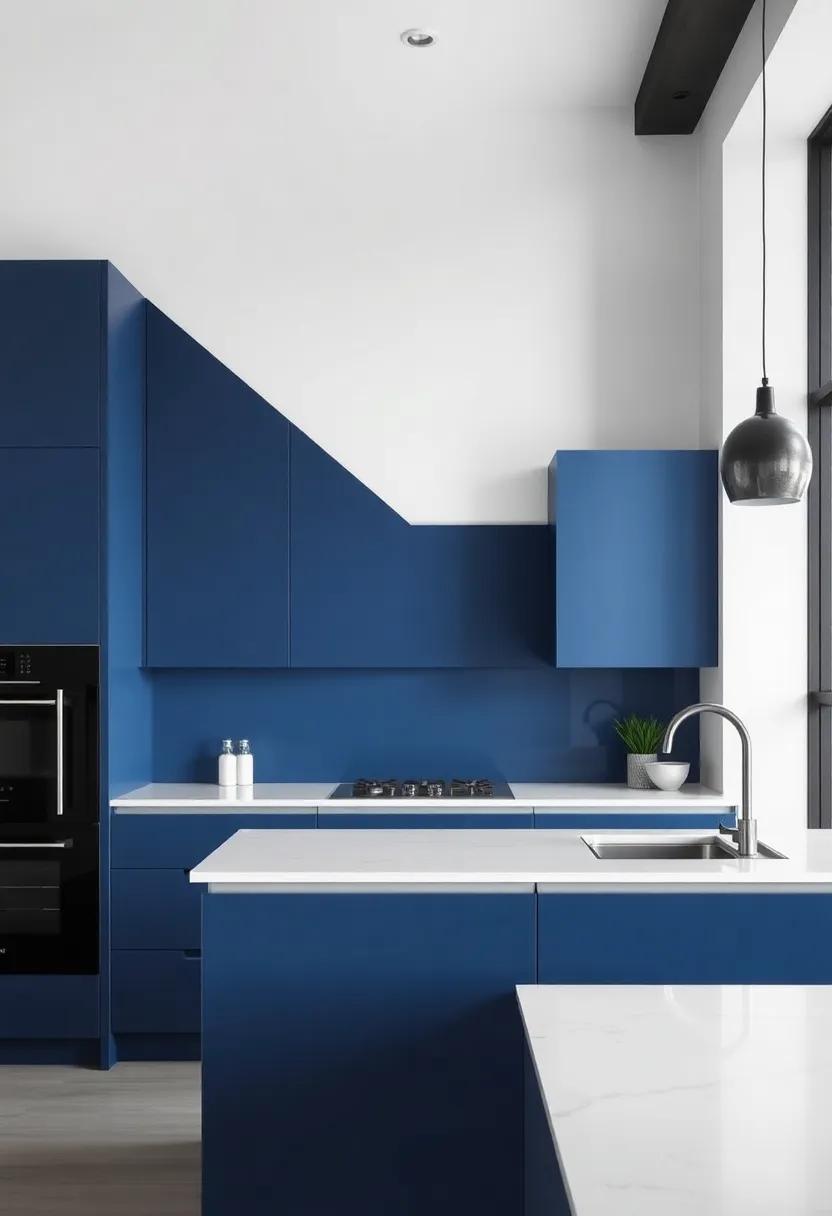
When exploring the realm of two-tone kitchen cabinets, the key is to strike a perfect balance between contrast and harmony. One innovative approach is to utilize a bold dark shade for lower cabinets to ground the space, while opting for a light, airy color on the upper cabinets to create an illusion of height and openness. This visual play not only adds depth to your kitchen design but also allows for a striking focal point. Consider pairing deep navy with crisp white, or charcoal gray with soft beige, to embody sophistication and modern elegance. Additionally, introducing natural wooden accents as finishes or trim can enhance the overall aesthetic while providing a warm, organic touch that complements both colors beautifully.
Another inventive idea is to incorporate playful combinations that reflect personal style and character. Think about pairing matte finishes with glossy alternatives for a chic contrast that catches the eye. As an example, a matte black base cabinet can be beautifully offset by glossy pastel-hued upper cabinets, creating a delightful visual dynamic that’s both contemporary and inviting. You could also experiment with textures by mixing painted wood with stained wood to bring an eclectic yet cohesive feel to the kitchen. Here’s a quick reference table to inspire your cabinetry colors:
| Base Cabinet Color | Upper Cabinet Color | Accent Material |
|---|---|---|
| Charcoal Gray | Soft White | Light Oak Trim |
| Deep Navy | Sky Blue | Brushed Nickel Hardware |
| Forest Green | Ivory | Walnut Floating Shelves |
Contrasting Elements: How Texture Plays a Key Role in Cabinet choices
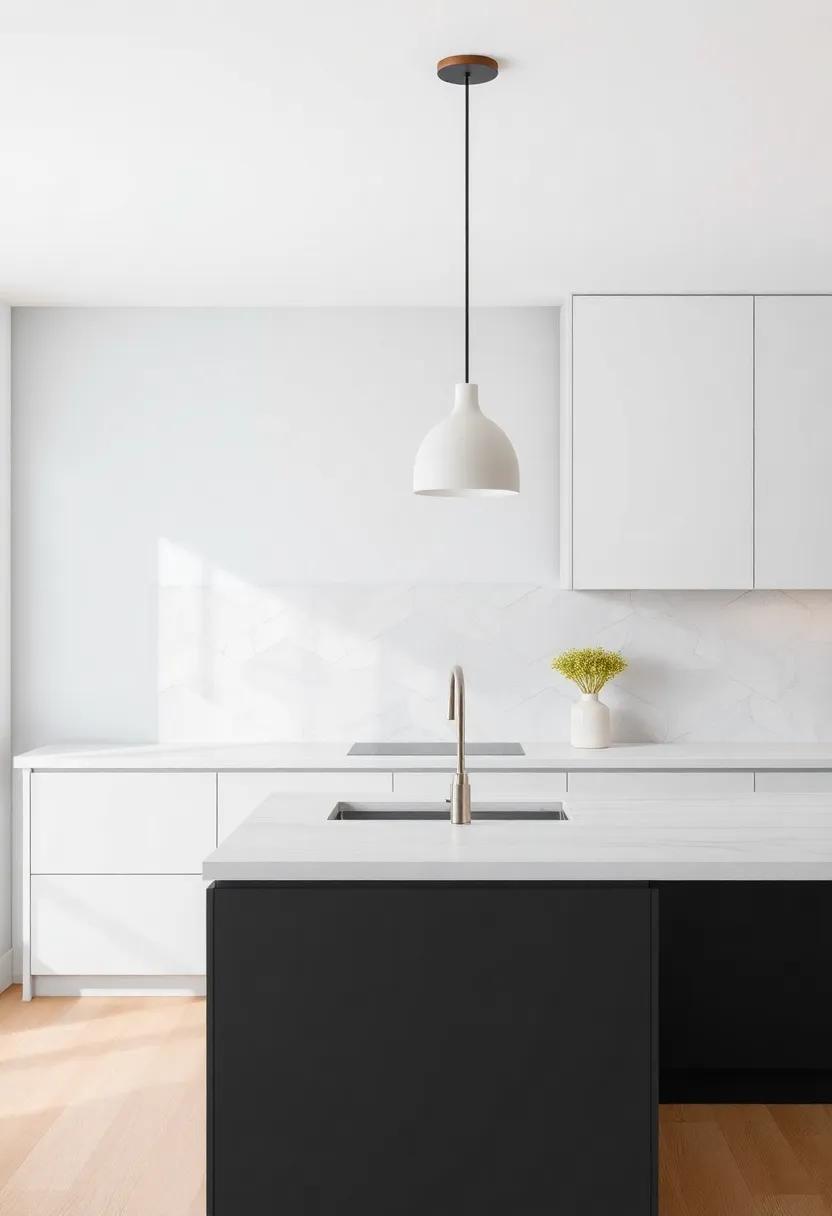
When selecting two-tone kitchen cabinets, the texture of the materials significantly impacts the overall aesthetic and functionality. Different textures can create a dynamic visual balance, elevating the kitchen’s design. As an example, pairing a sleek, glossy finish with a rustic wood grain can highlight the subtle interplay between modern and traditional styles. Consider these complementary texture combinations:
- Matte vs.Glossy: The contrast between a matte base cabinet and glossy upper cabinets can draw attention to specific zones.
- Textured Wood vs. Smooth Laminate: Introducing natural textures alongside smoother surfaces can add depth and warmth.
- Brushed Metal vs. Soft Fabric: combining brushed metal handles with soft-close mechanisms introduces an unexpected tactile element.
Moreover, how the light interacts with various textures can evoke different moods within the culinary space. A rough-hewn wooden cabinet can absorb light, creating a cozy, inviting atmosphere, while a high-gloss finish can reflect it, adding a sense of spaciousness. A simple comparison of textures can clarify your choices:
| Texture Type | Visual Effect | Best pairing |
|---|---|---|
| Matte | Soft,understated | Glossy accents |
| Rough | Warm,organic | Smooth,refined |
| Glossy | Bright,modern | Natural textures |
Functional aesthetics: The practical Benefits of Two-Tone Cabinetry
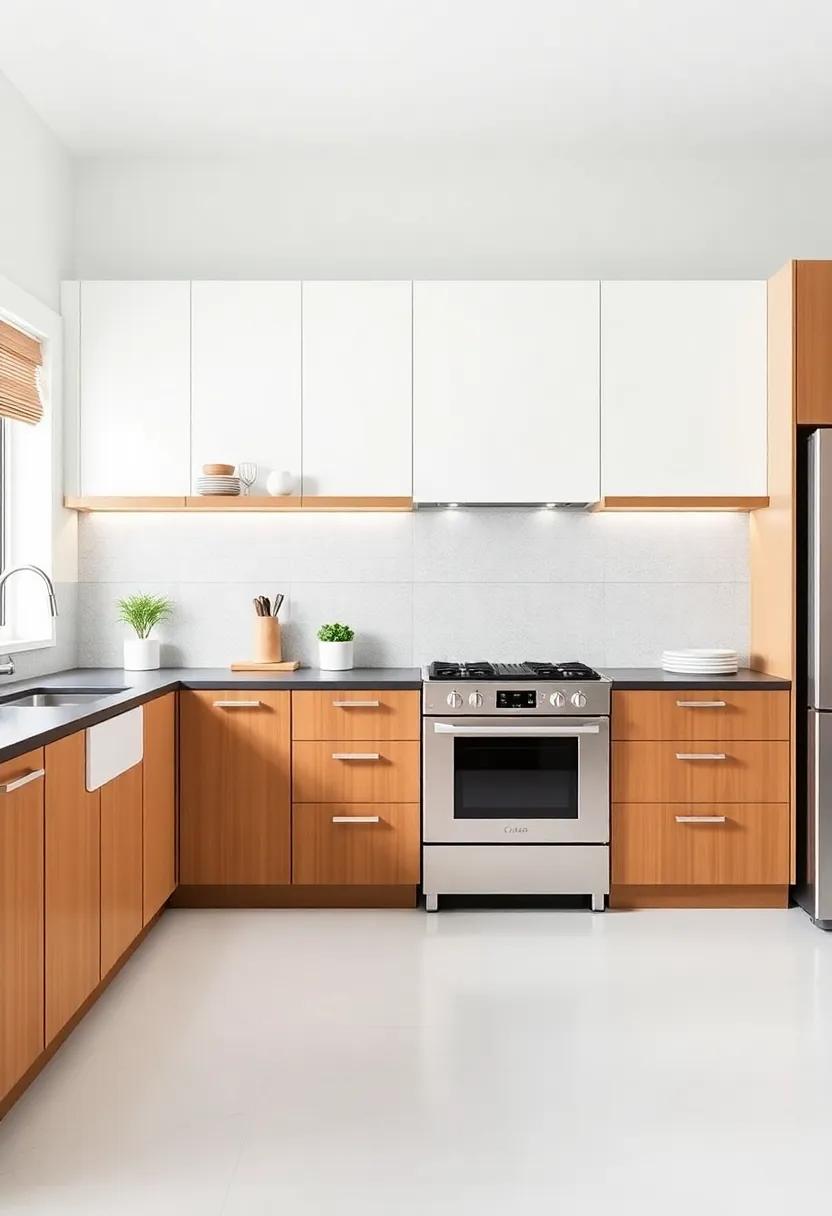
Two-tone cabinetry not only wows with its visual appeal but also brings a range of practical benefits to your kitchen. By combining two contrasting or complementary colors, you can create zones within your cooking space that help improve functionality. Such as, using a darker color on the lower cabinets while opting for a lighter shade on the upper shelves can enhance the perception of space and make cramped areas feel more open. This design strategy also allows for smart association, as different shades can visually classify storage areas, making it easier to locate items while you’re in the middle of culinary creations.
Additionally, two-tone cabinets offer an opportunity to mask wear and tear in high-use areas. Lighter hues can reflect dirt and grime more easily, so pairing them with darker lower cabinets can effectively disguise the inevitable scuff marks that occur from daily use. The following advantages further underscore the value of this trend:
- Customization: Tailor colors to your personal style and kitchen theme.
- Visual Hierarchy: Directs the eye and creates a focal point in the room.
- Maintenance: Darker colors are often more forgiving in terms of showing wear.
Capturing the Trend: A Brief History of Two-Tone Kitchen Cabinets
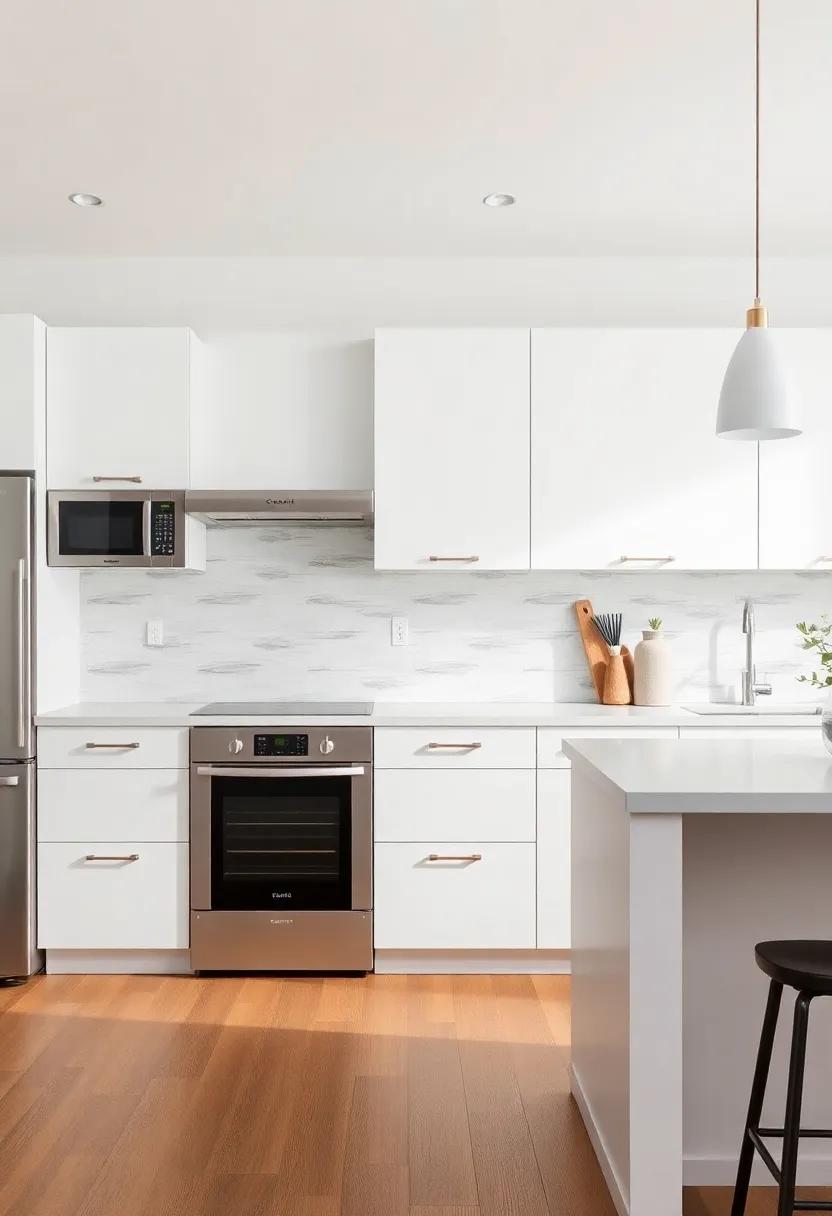
Two-tone kitchen cabinets have evolved significantly over the years, transforming from a utilitarian necessity to a bold design statement. In the early days of kitchen cabinetry, the focus was predominantly on functionality and durability, often resulting in monotonous designs that offered little in terms of style. Though, as home design began to flourish in the mid-20th century, homeowners and designers started experimenting with color combinations to break away from convention. This playful approach toward cabinetry gave birth to the idea of pairing contrasting colors, allowing for a more personalized and dynamic kitchen aesthetic.
By the late 20th and early 21st centuries, the trend of two-tone kitchen cabinets gained remarkable traction, encouraged by the rise of interior design shows and a growing focus on open-concept living spaces. Homeowners embraced the opportunity to reflect their unique tastes through various combinations of colors and finishes. Popular pairings included classic white and deep navy or bold black with warm wood tones, enabling kitchens to feel more inviting and integrated with their living areas. This innovative trend has not only redefined kitchen aesthetics but has also influenced the way we view the heart of our homes.
Dramatic Designs: Using bold Colors to Make a Statement in the Kitchen
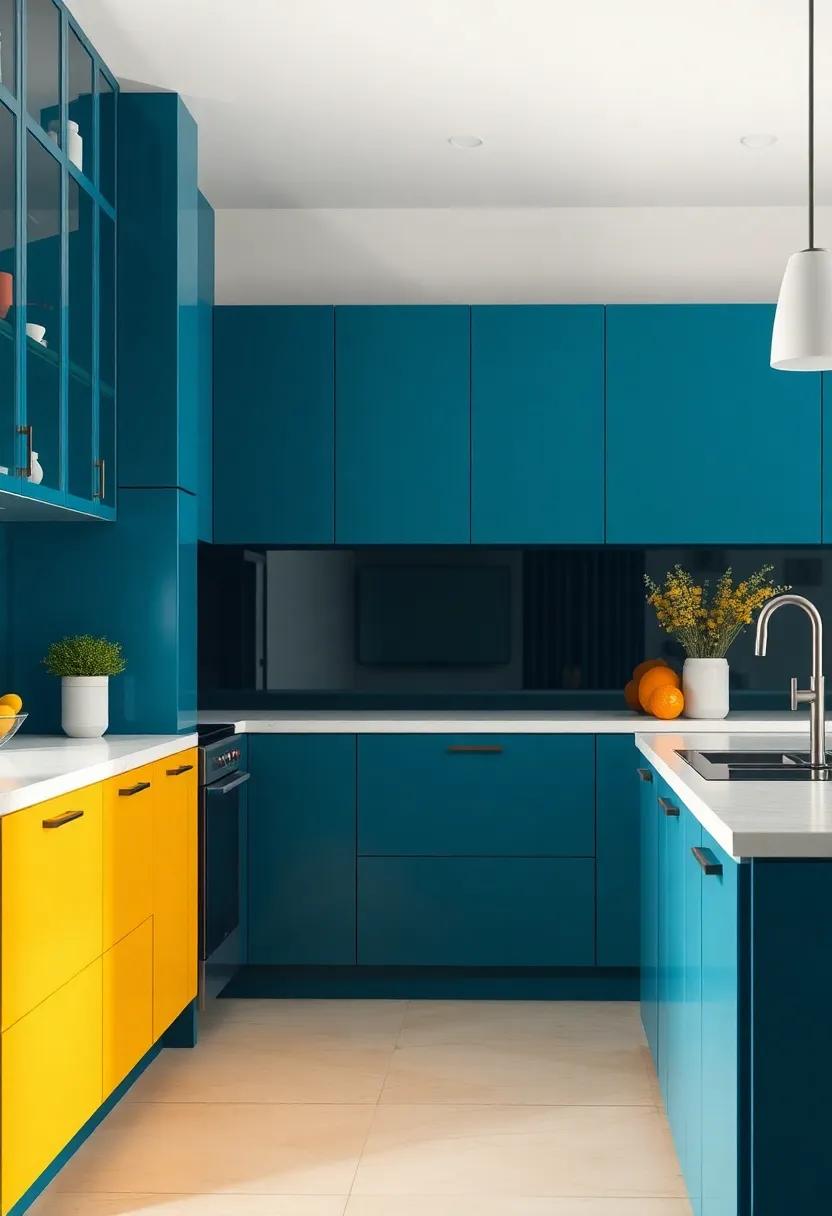
Embracing bold colors through two-tone kitchen cabinets offers an exhilarating approach to infusing personality into your culinary space. rather of opting for a monochromatic palette, consider pairing vivid hues that evoke a sense of energy and warmth. For instance, a striking deep navy upper cabinet can wonderfully contrast with a vibrant citrus yellow lower cabinet, creating a refreshing and dynamic look. This striking combination not only grabs attention but also enhances the spatial perception of your kitchen, making it feel more expansive and inviting.
When choosing colors, it’s essential to consider how they interact with your kitchen’s overall design. Here are some essential tips for making bold choices that resonate harmoniously throughout the space:
- Accent walls: Pair your cabinets with a bold backsplash.
- Contrasting knobs: Use hardware that complements the chosen cabinet colors.
- Lighting: Incorporate fixtures that highlight and enhance the color scheme.
This thoughtful approach not only highlights the beauty of two-tone cabinets but also contributes to a cohesive aesthetic, ensuring that your kitchen stands out as a vibrant centerpiece in your home.
Subtle Elegance: The Charm of Soft Hues and Subdued Contrasts
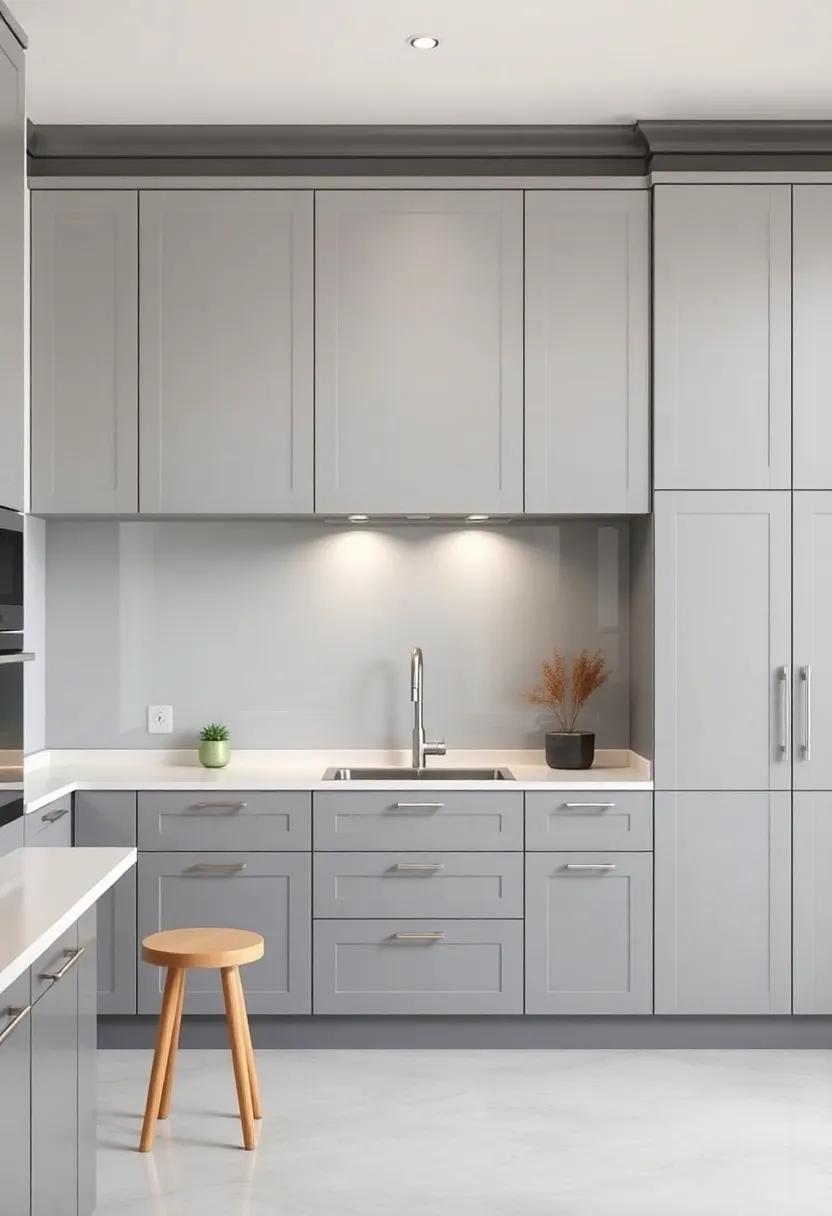
Soft hues and understated contrasts transform a kitchen into a serene culinary haven. Opting for two-tone cabinets in delicate shades not only enhances visual appeal but also evokes a sense of calm. When choosing colors, consider these popular combinations:
- Soft Sage Green paired with Creamy White
- Pale Blue complemented by Warm Gray
- Light blush Pink set against Charcoal
These choices provide an elegant balance between functionality and aesthetics, allowing your kitchen to reflect personal style without overwhelming the senses. Incorporating wood accents, such as open shelving or a butcher block countertop, can further enhance the charm of these subtle color schemes. A well-thought-out design leads to a cohesive look, ensuring that your culinary space remains inviting, while also serving its practical purpose.
| Color Combination | Finish Style | Ideal Accents |
|---|---|---|
| Soft Sage Green & Creamy White | Matte | Brass Hardware |
| Pale blue & warm Gray | Shaker | Natural Wood Shelves |
| Light Blush Pink & Charcoal | Glossy | White Marble Countertops |
Timeless Combinations: Classic Color Pairings for a Lasting Impression
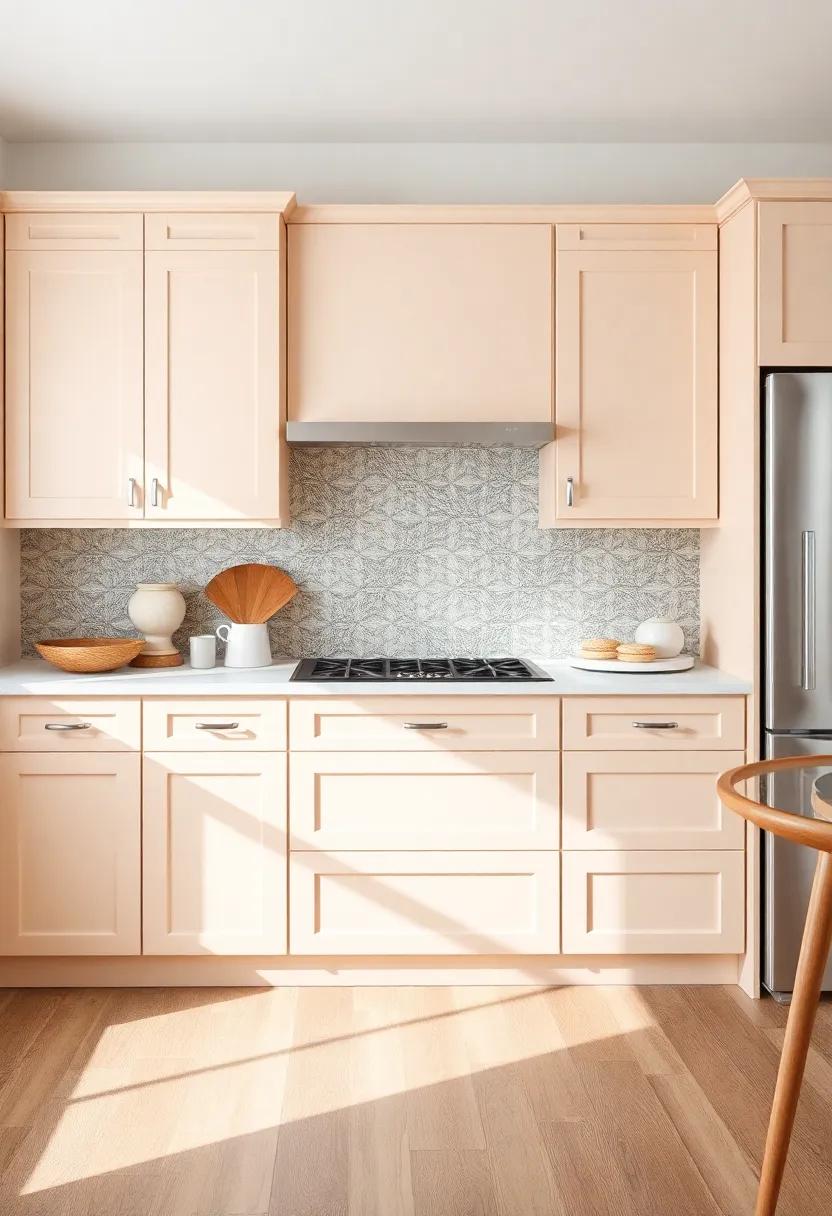
In the world of design, certain color pairings transcend trends and define elegance. Pairing white with navy blue can create a stunning balance, where the crispness of white enhances the deep, calming tones of navy. This combination not only adds a touch of sophistication but also invites a sense of freshness, making it ideal for kitchen spaces. Another enduring combination is soft grey with warm wood tones. The cool neutrality of grey complements the richness of wood, providing warmth and depth while remaining modern and inviting.
When considering more daring choices, think about the duo of charcoal and mustard.Charcoal brings a modern edge, while mustard introduces a pop of color and energy—perfect for a kitchen that aims to inspire creativity. Additionally, pastel pink and mint green create a soft, whimsical vibe, reminiscent of vintage aesthetics yet undeniably stylish. Incorporating these combinations through two-tone cabinets can transform your culinary space into a masterpiece that speaks to both timeless elegance and modern design.
Showcasing Open Shelving: Enhancing Two-Tone Cabinets With Display Options
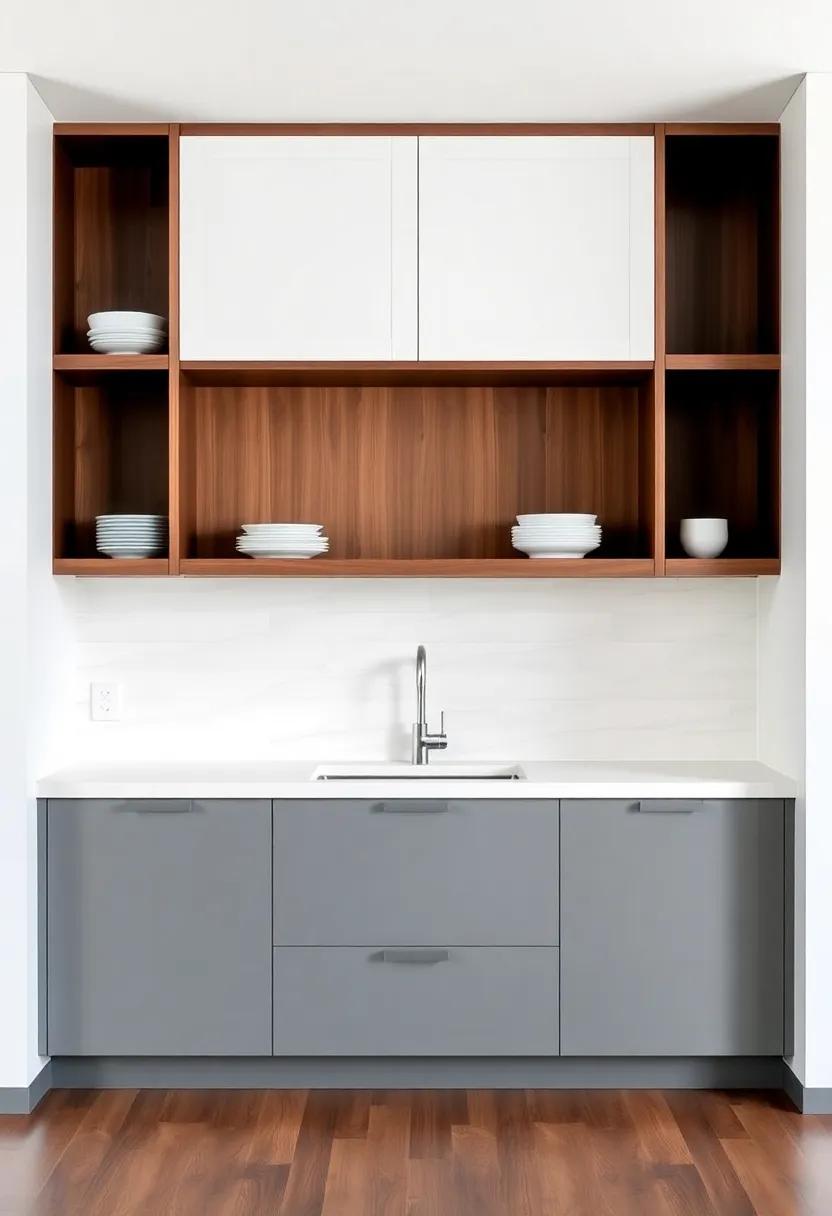
Integrating open shelving into a two-tone kitchen cabinet design not only amplifies the aesthetic appeal but also adds functionality and personal expression. With the contrast of bold hues or intricate wood grains, these shelves serve as the perfect platform to showcase your favorite dishware, cookbooks, or decorative items. Consider the following display options that can truly elevate your culinary space:
- Color Coordination: Utilize items that complement the cabinet colors, crafting a cohesive look.
- Layering Heights: Play with varying heights of items to create visual interest and draw the eye.
- Lighting Considerations: Incorporate under-shelf lighting to highlight your displayed pieces and enhance ambiance.
In addition to aesthetic appeal, open shelving can also introduce practicality into your kitchen. By making commonly used items accessible, you streamline cooking and meal prep, minimizing clutter and emphasizing ease of use. A well-thought-out arrangement can be both functional and stylish. Such as, take a look at this simple layout for organizing shelf items:
| Item type | purpose |
|---|---|
| Dinnerware | Everyday use for meals |
| Glass Jars | Displaying pantry staples |
| Cookbooks | Inspirational cooking references |
Accentuating architectural Features Through Strategic Color Placement
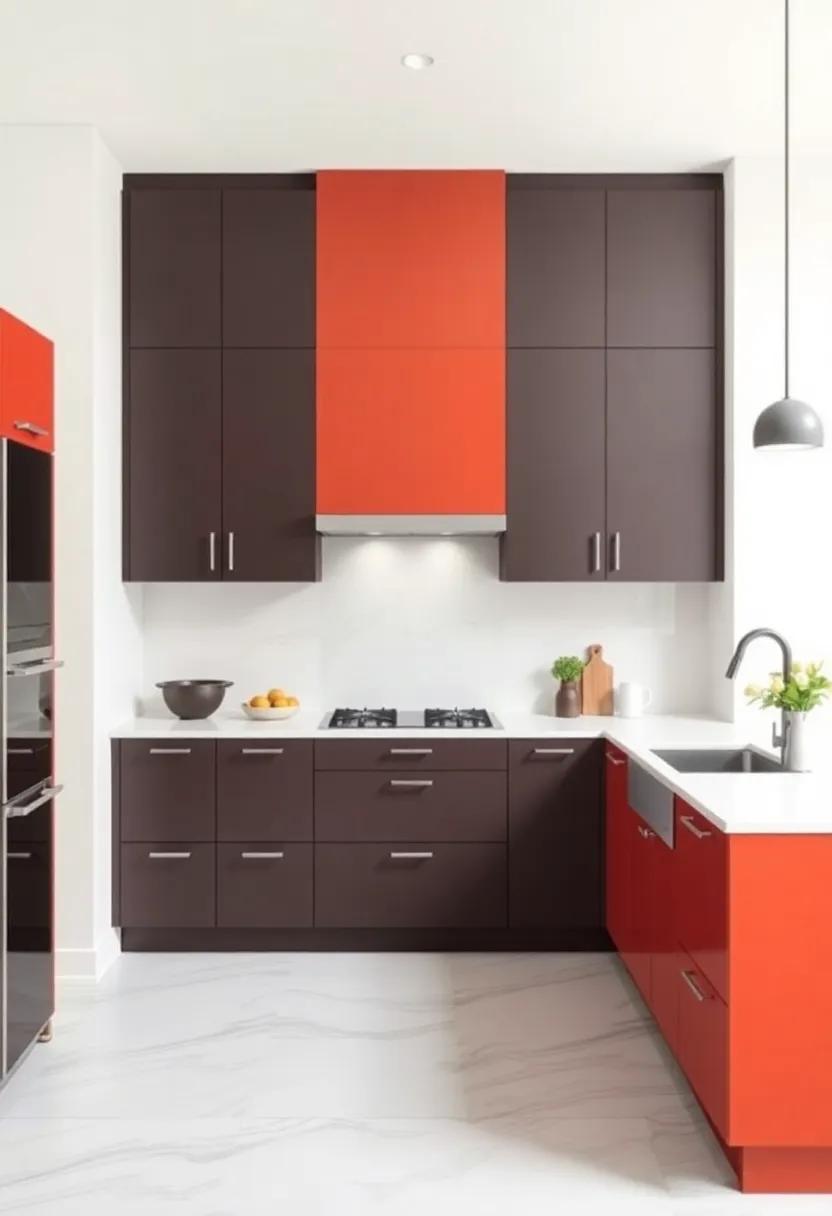
Strategically applying color in your kitchen can turn functional cabinetry into captivating focal points. By utilizing a two-tone approach, you can highlight distinct architectural features while creating a harmonious balance throughout the space.Consider combining a dark hue on the lower cabinets, which can anchor the room, with a lighter shade on the upper cabinets to enhance the illusion of height. A well-chosen palette not only accentuates the cabinetry’s design but also draws the eye to special features such as crown molding or intricate hardware.
Moreover,the careful selection of colors can evoke various moods and atmospheres. Here are some compelling combinations to consider:
- Slate Gray and Crisp White: A modern and sophisticated look that pairs well with stainless steel appliances.
- Navy Blue and Soft Cream: Offers a nautical charm that adds depth and warmth to the space.
- Mint Green and Warm oak: Invokes a refreshing, vintage feel, perfect for cottage-style kitchens.
Incorporating these color schemes can also define zones within the kitchen, encouraging a functional yet stylish culinary environment. As a notable example, a bold color can be used strategically on an island or breakfast nook, creating an inviting area for social gatherings or meal prep. the following table summarizes the psychological impact of various color choices:
| Color | psychological Effect |
|---|---|
| Red | Stimulating, energizing |
| Yellow | Cheerful, uplifting |
| Green | Soothing, restorative |
| Blue | Calming, peaceful |
Personal Touches: Customizing Your Two-Tone Cabinets for a Unique Look
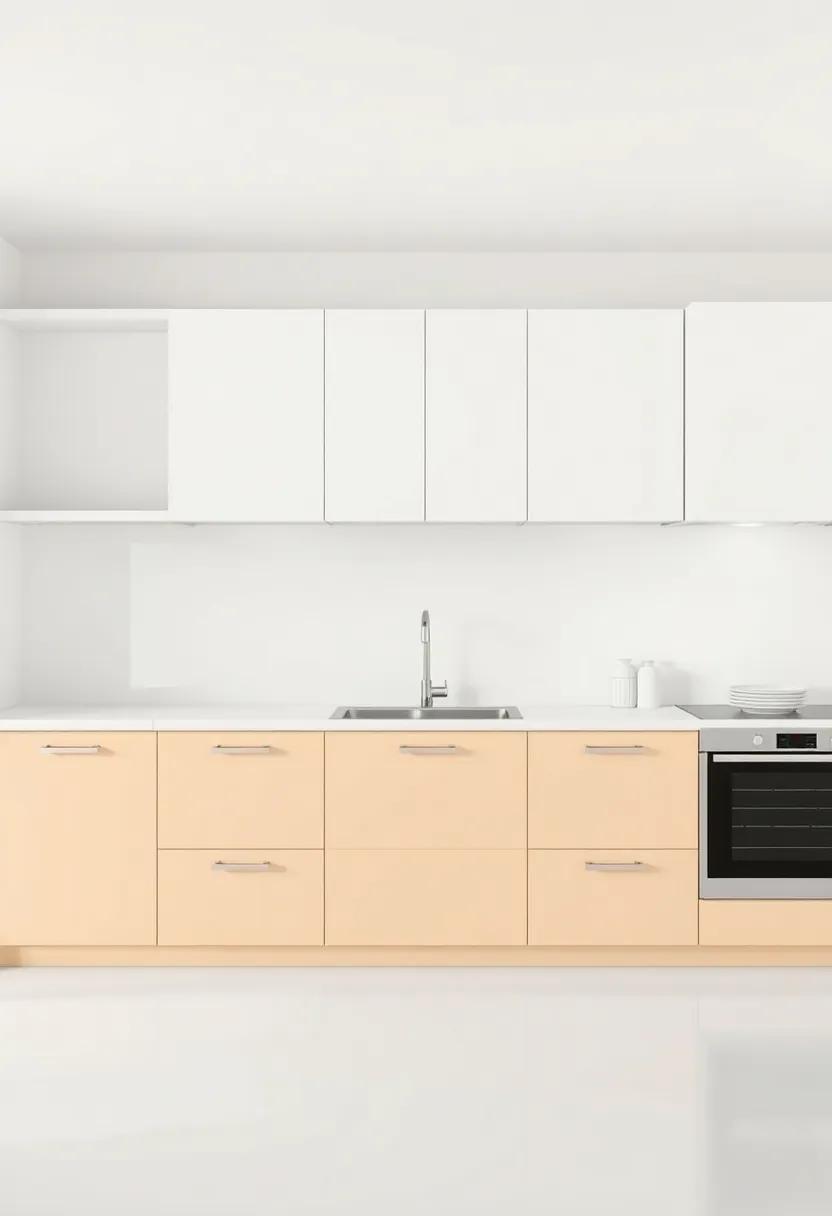
Customizing your two-tone cabinets is an exciting opportunity to reflect your personality and elevate the aesthetic of your kitchen.Start by selecting colors that resonate with your style while ensuring they complement each other. Consider a combination of bold and soft hues to create contrast, or mix textures by pairing matte finishes with glossy surfaces. You can also explore unique color palettes such as:
- Classic Black & White – Timeless elegance
- Teal & Natural Wood – A coastal vibe
- Soft Gray & Charcoal – Modern sophistication
Beyond colors, think about integrating personalized elements that enhance functionality and style. Hardware options such as knobs or pulls can make a striking difference when choosing styles that harmonize with your overall design. Here are some aspects to consider for a customized touch:
| Element | Customization Options |
|---|---|
| Cabinet Doors | Glass inserts, Open shelves, Panel molding |
| Countertops | Mixed materials, unique edge profiles, Custom colors |
Embracing Modern Trends: Exploring Current Styles in Two-Tone Cabinets
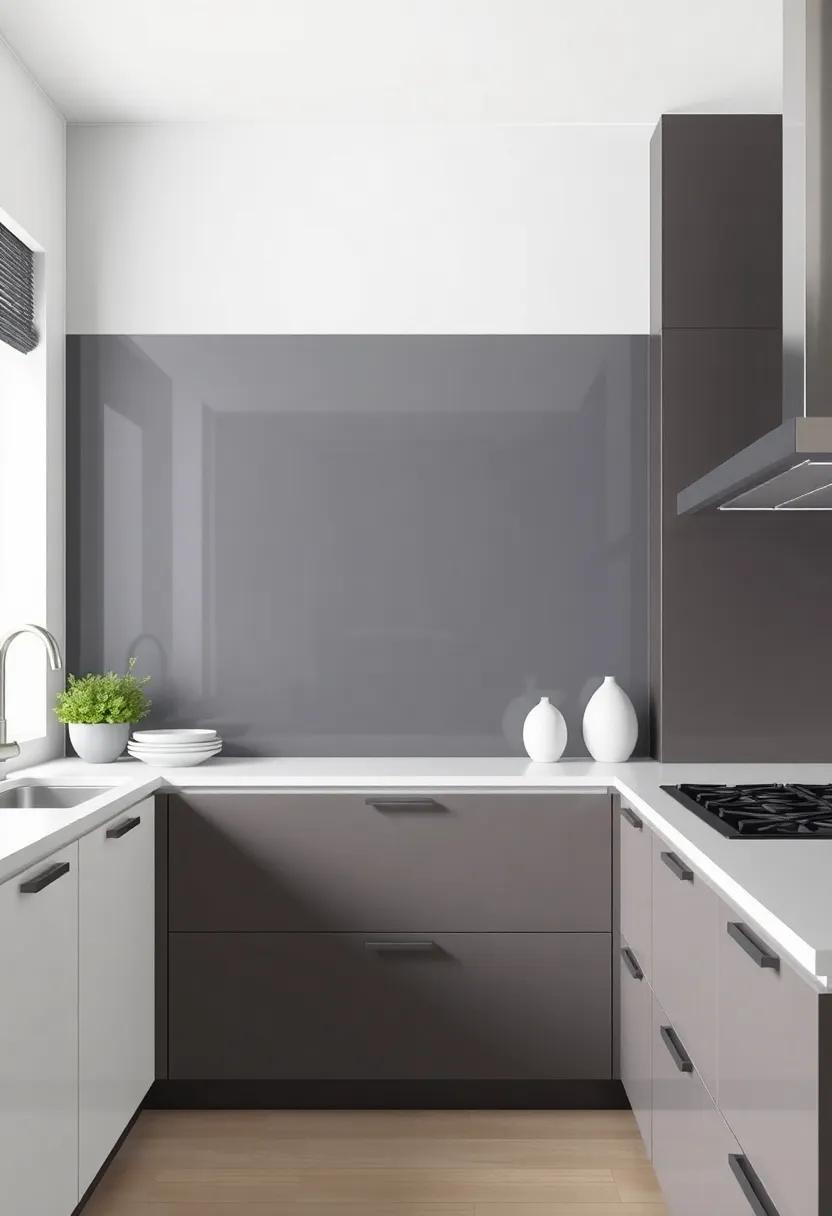
In today’s kitchen design landscape, the use of two-tone cabinets is a striking choice that speaks to both tradition and innovation. Embracing this style allows homeowners to create visually engaging spaces that reflect their personal taste while sparking joy in everyday cooking experiences. Contrasting colors can define distinct areas in your kitchen, such as pairing deep navy blue cabinets with crisp white ones to evoke a sense of elegance and modernity. This combination not only adds depth but also enhances the room’s natural light, creating a balanced atmosphere perfect for family gatherings or intimate dinners.
Moreover, incorporating various textures and finishes can elevate the two-tone aesthetic, turning a standard kitchen into a personalized culinary haven. Homeowners may experiment with different materials, such as matte versus glossy finishes, to add dimension to their cabinetry. Consider mixing shaker-style cabinets with modern flat-front designs or using wood accents to soften the look. To help visualize popular combinations, refer to the table below that showcases trending color pairings:
| Primary Color | Accent Color | Style Vibe |
|---|---|---|
| Charcoal Gray | Soft Sage Green | Contemporary & earthy |
| Bright White | Rich mahogany | Classic & Warm |
| Ocean Blue | Light Gray | Calm & Inviting |
| Buttermilk Yellow | Graphite Black | Bold & Cheerful |
Choosing the Right Hardware to Complement two-tone Cabinet Designs
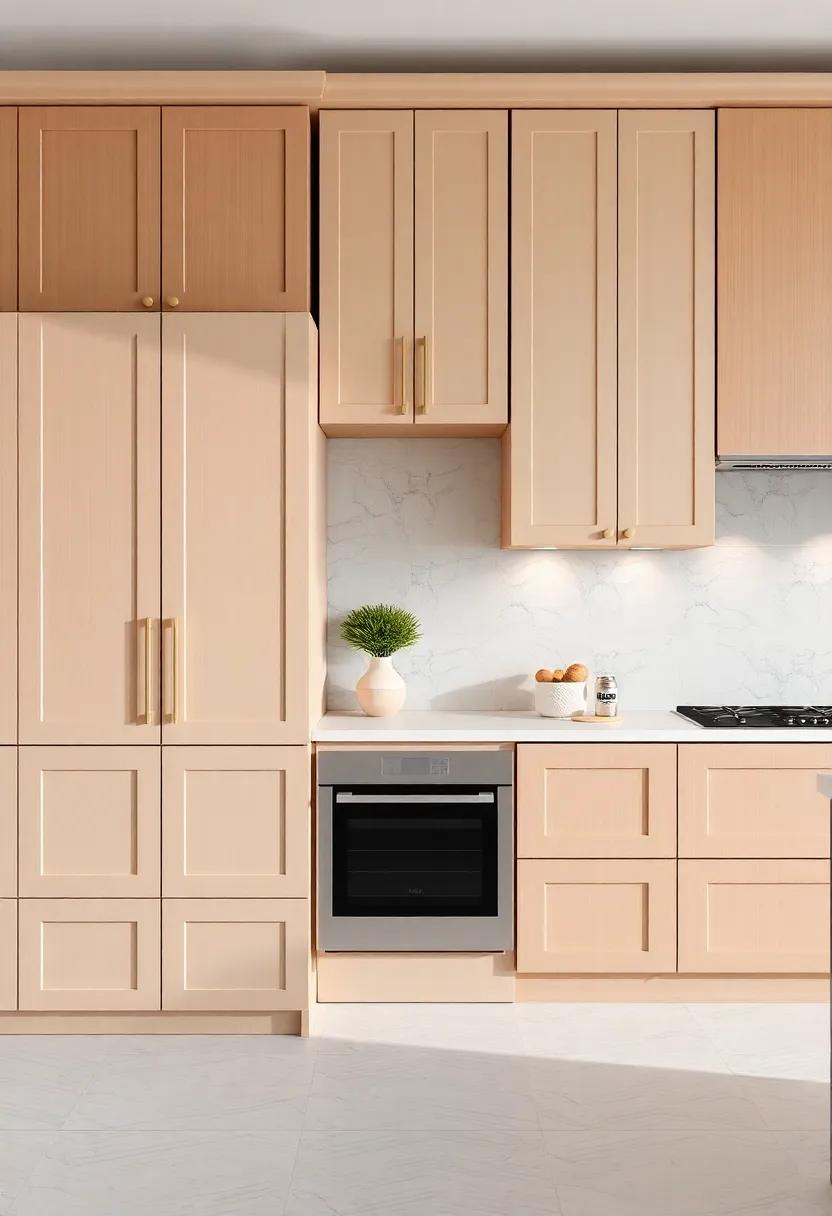
When selecting hardware for your two-tone kitchen cabinets, consider options that enhance the overall aesthetic while maintaining functionality. The interplay of colors can dictate the style of hardware that complements your design; for instance, if one color is a bold navy blue and the other a soft white, opt for brushed brass or matte black to create a striking contrast. Sleek, modern handles can impart a contemporary feel, while ornate knobs may lean more traditional. Take into account the finish as well,since a polished pendant may clash with a distressed cabinet.
- Brushed brass for warmth
- Matte black for a modern vibe
- Classic silver for timeless elegance
- Antique bronze for a rustic touch
Moreover, think about the scale and size of the hardware in relation to your cabinet doors. Large, chunky pulls may overwhelm delicate cabinets, while dainty knobs might get lost on substantial doors. It’s also vital to consider the ergonomic aspect; hardware that feels agreeable and intuitive to use enhances the kitchen experience. You may even want to mix and match finishes for a more eclectic look, such as using matte black pulls against antique white cabinets paired with brushed brass accents on dark navy. This blend can create a customized and personalized feel.
| Hardware Type | Best Color match | Style Influence |
|---|---|---|
| Brushed Brass Pull | Dark or Light Tones | Modern/Rustic |
| Matte Black Knob | Light Tones | Contemporary |
| Antique Bronze Handle | Neutral Shades | Traditional |
| Chrome Knob | Vibrant Colors | Modern |
Spicing up Storage Solutions: Innovative Organization with Two-Tone Cabinetry
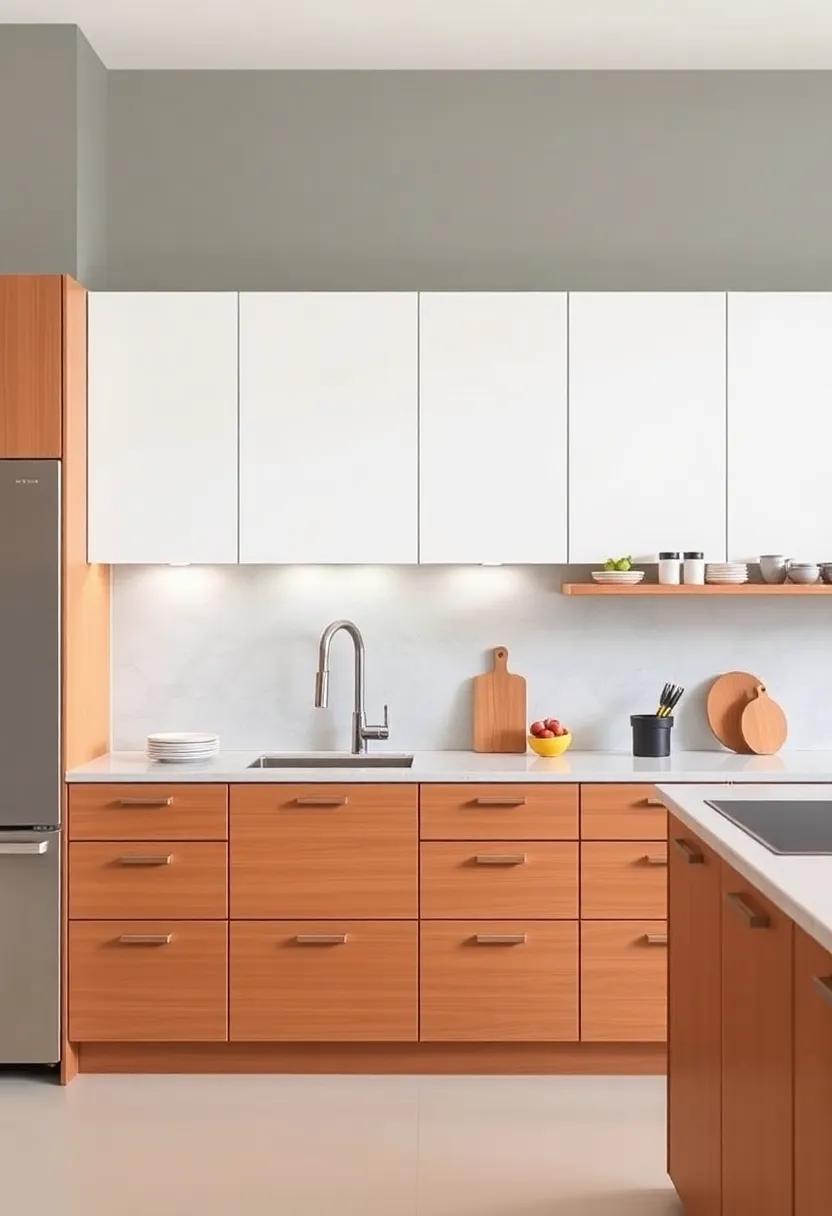
Transforming your kitchen organization can be both functional and aesthetically pleasing, notably with the strategic use of two-tone cabinetry. By combining contrasting colors or finishes, you can create a striking visual impact while enhancing storage efficiency. Imagine the elegance of deep navy blue lower cabinets paired with crisp white upper cabinets, providing not only a bold statement but also a practical way to differentiate between work and prep areas. This modern twist on traditional cabinetry fosters an environment that encourages creativity in the kitchen, turning mundane chores into delightful activities.
For those looking to maximize efficiency, consider incorporating organized elements within your two-tone design. Utilizing pull-out shelves, lazy Susans, or custom dividers can make your cabinetry more functional while maintaining aesthetic continuity. Here are some innovative storage solutions to consider:
- drawer Organizers: Keep utensils and gadgets neatly arranged.
- Open Shelving: Showcase decorative dishware against contrasting cabinet colors.
- Hidden Compartment Cabinets: Ideal for hiding away appliances while offering a sleek look.
| Color Combination | Storage Style | Visual Impact |
|---|---|---|
| Charcoal Gray & Light Ash | Open Industrial Shelving | Modern and Inviting |
| Soft Green & Crisp White | Custom Pull-Out Bins | Fresh and Airy |
| Rich Teal & Warm Maple | Farmhouse-Style Cabinets | Cozy and Charming |
Final Thoughts
As we draw the curtains on our exploration of two-tone kitchen cabinets, it’s clear that the allure of this design trend transcends mere aesthetics. By thoughtfully combining contrasting colors, you can create a visual symphony that resonates throughout your culinary space, reflecting your unique style while enhancing functionality.Whether you opt for bold and dramatic pairings or soft and subtle harmonies, two-tone cabinets offer a canvas for creativity, making the kitchen not just a place for cooking but a true reflection of your personality. So, as you embark on your journey to transform your kitchen, remember: each choice you make amplifies the charm of this heartwarming hub of your home. Embrace the possibilities and let your kitchen tell its own story—one hue at a time.
As an Amazon Associate I earn from qualifying purchases.

